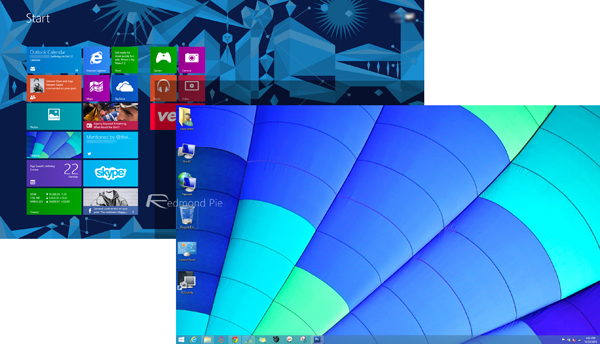In what will likely be toasted in tech circles a victory for users, it looks like a forthcoming Windows 8.1 update could boot to the traditional desktop by default, skipping (although not removing) the tiled interface that many have begrudgingly become accustomed to. According to The Verge, which cites sources familiar with Microsoft’s OS plans moving forward, the "Metro" (or Modern) landing screen will not greet users upon booting, but can be reinstated within the settings for those who require it.
Although the dust has settled and the original furore has, for the most part, died down, it’s fair to say that Windows 8 hit many users like a freight train. A completely revamped, somewhat bamboozling user interface was beset upon many desktop users, and although those purchasing touch-based Windows 8 devices had some idea of what they were letting themselves in for, many on PC and notebook neither wanted, needed, or could make any sense of the new UI, which Microsoft used to call Metro.
Prior to dropping Windows 8, Microsoft seemed fairly confident that users would take kindly to the new approach, but while the release wasn’t as disastrous as the likes of Vista, it certainly left many reeling in bemusement.
Microsoft would never openly admit to taking a massive step back, but the remonstration was enough for the Redmond company to make some subtle, but well received alterations with the subsequent Windows 8.1. An option for booting to desktop, which seemed to counteract the whole push for the universal, tile-focused UI, was drafted in, and now, the software maker looks to be going the whole hog in bringing the old desktop back.
The move is being made with traditional, keyboard-and-mouse computer users in mind, which is something that most of us saw all along. Tiles are pretty and intuitive on a Surface Pro or a Lumia 1020, but when you’re sitting at home on an old Compaq hooked up to a Dell display, the Windows 7-esque approach is going to win every time.
The update is also expected to facilitate the pinning of Metro apps to the taskbar, while the Start Screen will also be blessed with search and shut-down buttons for easy access to said functions.
(Source: TheVerge)
You may also like to check out:
You can follow us on Twitter, add us to your circle on Google+ or like our Facebook page to keep yourself updated on all the latest from Microsoft, Google, Apple and the Web.

